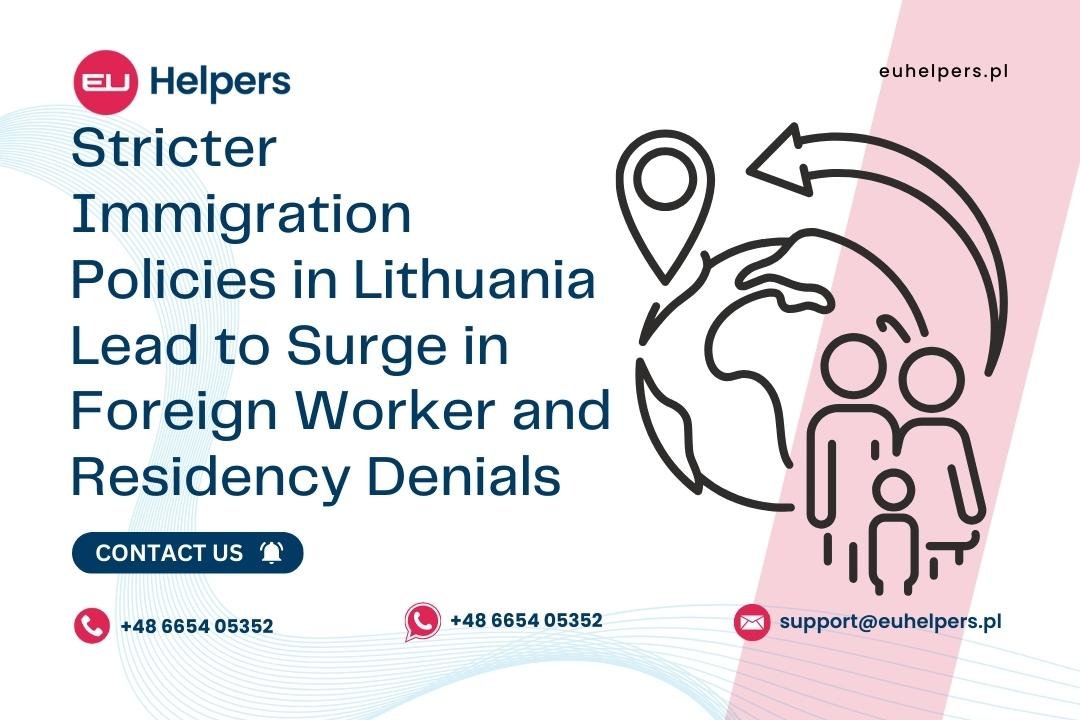Lithuania is experiencing a significant surge in the number of foreign nationals being denied the right to live and work within its borders, following the implementation of stricter immigration policies. In response to these changes, nearly 36,000 foreign workers have been rejected for work and residency in 2024 alone, according to the latest data from the Lithuanian Ministry of Interior.
The increase in denials comes in the wake of amendments to Lithuania's Law on the Legal Status of Foreigners, which took effect on July 1, 2024. These legislative adjustments, alongside other stringent measures, have created a more challenging environment for foreign nationals seeking employment and residence in the country.
As of this year, approximately 116,000 foreigners are currently employed in Lithuania, with around 220,000 residing in the country. This number includes a significant influx of Ukrainian refugees. A major policy shift aimed at regulating the flow of foreign workers has been the streamlining of external service providers that manage employment applications, reducing their numbers from 34 to 30. This consolidation is intended to enhance control and oversight of foreign worker recruitment.
Additionally, Lithuania has tightened the criteria for granting residence permits. Of the 67,175 residence permit applications processed in 2024, 20,410 were rejected due to various deficiencies, ranging from incomplete documentation to failure to meet eligibility criteria.
In a further effort to ensure compliance with its immigration laws, Lithuania has banned 45 local companies from recruiting foreign workers. This move is part of the government's broader strategy to strengthen oversight of the employment process and curb potential abuses of the system.
These tightened regulations reflect Lithuania’s broader commitment to enforcing migration control while ensuring that foreign workers and residents meet the country's evolving legal and regulatory standards.

